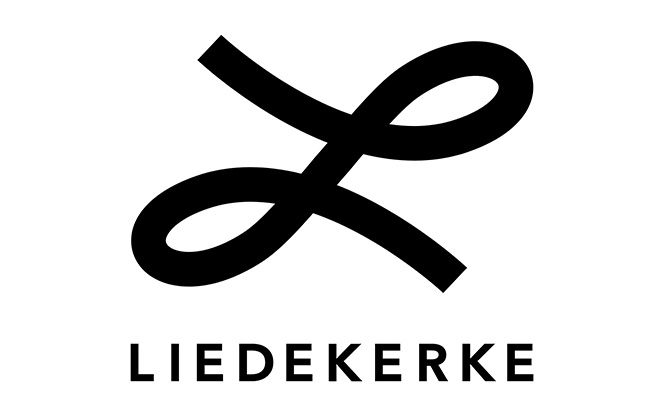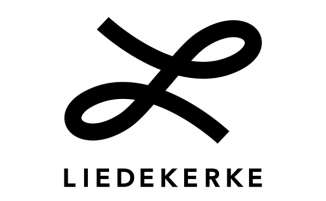1. What are the key tax laws and regulations in Belgium that individuals and businesses should be familiar with?1. What are the key tax laws and regulations in Belgium that individuals and businesses should be familiar with?
The Belgian tax regime is essentially based on the Income Tax Code 1992 (ITC92) and the Royal Decree implementing the ITC92. Income taxes are in principle levied on (i) the total worldwide income of Belgian tax resident individuals and companies (ie, personal income tax and corporate income tax) unless domestic law or tax treaties provide for reductions or exemptions, and (ii) the Belgian sourced-income of non-resident individuals and companies (non-resident taxation). Taxation typically occurs on a net basis, ie, after the deduction of expenses.
2. Can you explain the personal income tax rates and thresholds for residents and non-residents in Belgium?
Save for certain types of specific income, the net income (real estate income, moveable income, professional income and miscellaneous income) of Belgian tax resident individuals is in principle globalised and subject to the progressive income tax rates. These progressive income tax rates apply to (yearly indexed) tax brackets, whereby a minimum tax-exempt lump sum is foreseen. For income year 2023:
- 25% is levied on a first bracket up to €15,200 (with an exempt lump sum amount of in principle €10,160);
- 40% on the bracket from €15,200 to €26,830;
- 45% on the bracket from €26,830 to €46,440; and
- 50% on the net income exceeding €46,440.
Municipalities may levy additional local taxes.
Specific exemptions or separate tax rates apply for different types of income, eg, capital gains on shares will under certain conditions be exempt, interest and dividend income will in principle be subject to a final 30% withholding tax (WHT), certain types of miscellaneous income can be taxed at 16.5% up to 33%.Non-resident individuals are in principle, with respect to Belgian-sourced income, subject to the same tax rates as Belgian residents.
3. What are the corporate tax rates and incentives for businesses operating in Belgium?
The standard corporate income tax rate is 25%. Specific incentives are available, such as incentives for start-ups, R&D tax incentives, and tax shelters for the movie and entertainment industry. Specific tax regimes apply for holding companies, (real estate) investment companies and/or funds.
4. Are there any specific tax considerations or benefits for small or medium-sized enterprises (SMEs) in Belgium?
SMEs can benefit from a reduced 20% corporate income tax rate on the first tranche of €100,000 of net income. Other benefits are available, such as an increased investment deduction for digital fixed assets.
5. How does Belgium handle taxation of investment income, such as dividends, interest, and capital gains?
Dividends distributed by Belgian companies or by foreign companies with a Belgian paying intermediary are subject to 30% WHT subject to exemptions and reduced rates under domestic law or tax treaties. Belgian individuals are not obliged to report this dividend income; hence, the WHT would then be a final tax. Belgian companies may in principle credit the Belgian WHT against the corporate income tax and any excess is refundable; they may also benefit from an exemption for qualifying dividends (as a 100% deduction).
Interest distributed by Belgian companies or by foreign companies with a Belgian paying intermediary is subject to 30% WHT subject to exemptions and reduced rates under domestic law or tax treaties. Belgian individuals are not obliged to report this interest income; hence, the WHT would then be a final tax. Belgian corporates may in principle credit the Belgian WHT against the corporate income tax and any excess is refundable.Capital gains realised by individuals on business assets are in principle subject to the progressive income tax rates. Specific regimes apply for capital gains on other assets, eg, capital gains on shares may be exempt provided they are realised in the normal management of one’s private estate. Capital gains realised by Belgian companies are in principle subject to the ordinary corporate income tax subject to exceptions, such as an exemption for capital gains on qualifying shares.
6. Can you provide guidance on the tax implications and compliance requirements for cross-border transactions and international tax planning in Belgium?
Foreign enterprises undertaking economic activities in Belgium could trigger a permanent establishment in Belgium under a tax treaty as a result of which profits attributable to the permanent establishment are in principle taxable in Belgium. Even in the absence of a permanent establishment under a tax treaty, these activities could still trigger a Belgian establishment under domestic law resulting in mere compliance obligations (ie, filing an income tax return, withholding salary tax and accounting obligations).
There is no general tax consolidation in Belgium although a restrictive consolidation regime applies.
Dividend, interest and royalties may benefit from domestic WHT exemptions and reduced rates under tax treaties.
The Belgian tax authorities can apply various anti-avoidance measures under domestic law, EU law and tax treaties. Transactions should have sufficient economic substance.
Taxpayers can obtain advance tax rulings confirming the tax treatment of contemplated operations.
Belgium has an extensive tax treaty network to avoid double taxation.
The Belgian tax authorities have a sound reputation in trying to avoid double taxation via dispute resolution mechanisms such as the mutual agreement procedure under tax treaties or the EU Arbitration Directive.
The Belgian tax authorities generally apply OECD guidance when interpreting and applying tax treaties, including in transfer pricing matters.
7. What are the main tax deductions and credits available to individuals and businesses in Belgium?
Individuals can benefit from tax deductions such as for long-term savings, pension savings, investments in new SMEs.Companies can reduce their income tax base through various deductions such as, and subject to conditions and limitations, the 100% dividend received deduction, a deduction for carried-forward tax losses (no carry back), ‘innovation income’ deduction, an investment deduction.
A foreign tax credit relating to foreign-sourced interest and royalties is available for Belgian individuals and companies.
8. Are there any specific tax treaties or agreements that Belgium has with other countries to avoid double taxation?
Belgium has concluded tax treaties of which there are currently 95 in force. Belgium is also subject to EU directives such as the Parent-Subsidiary Directive, the Interest-Royalty Directive, and the Merger Directive.
9. How can I effectively structure my business or investments in Belgium to optimise tax efficiency and minimise liabilities?
There is not one single way to optimise tax efficiency and minimise tax liabilities. Depending on the type of business and investment, there are options to structure the business or investment in a tax-efficient way to avoid unnecessary tax leakage during the investment period (eg, typically interest and dividend income) or upon exit (eg, typically capital gains on shares). For companies with certain specific activities, such as holding companies, (real estate) investment companies and/or funds, beneficial tax regimes may apply. It is therefore key to consult your tax counsel prior to starting a business or making an investment.
10. Are there any recent tax developments or upcoming changes in Belgium that individuals and businesses should be aware of?
In July 2023 a tax reform has been debated at the Belgian federal level, but no agreement was reached.
Contacts

Lievin De Wulf
Partner
E: l.dewulf@liedekerke.com

Pierre Desenfans
Partner
E: p.desenfans@liedekerke.com

Jasper Bossuyt
Senior associate
E: j.bossuyt@liedekerke.com














